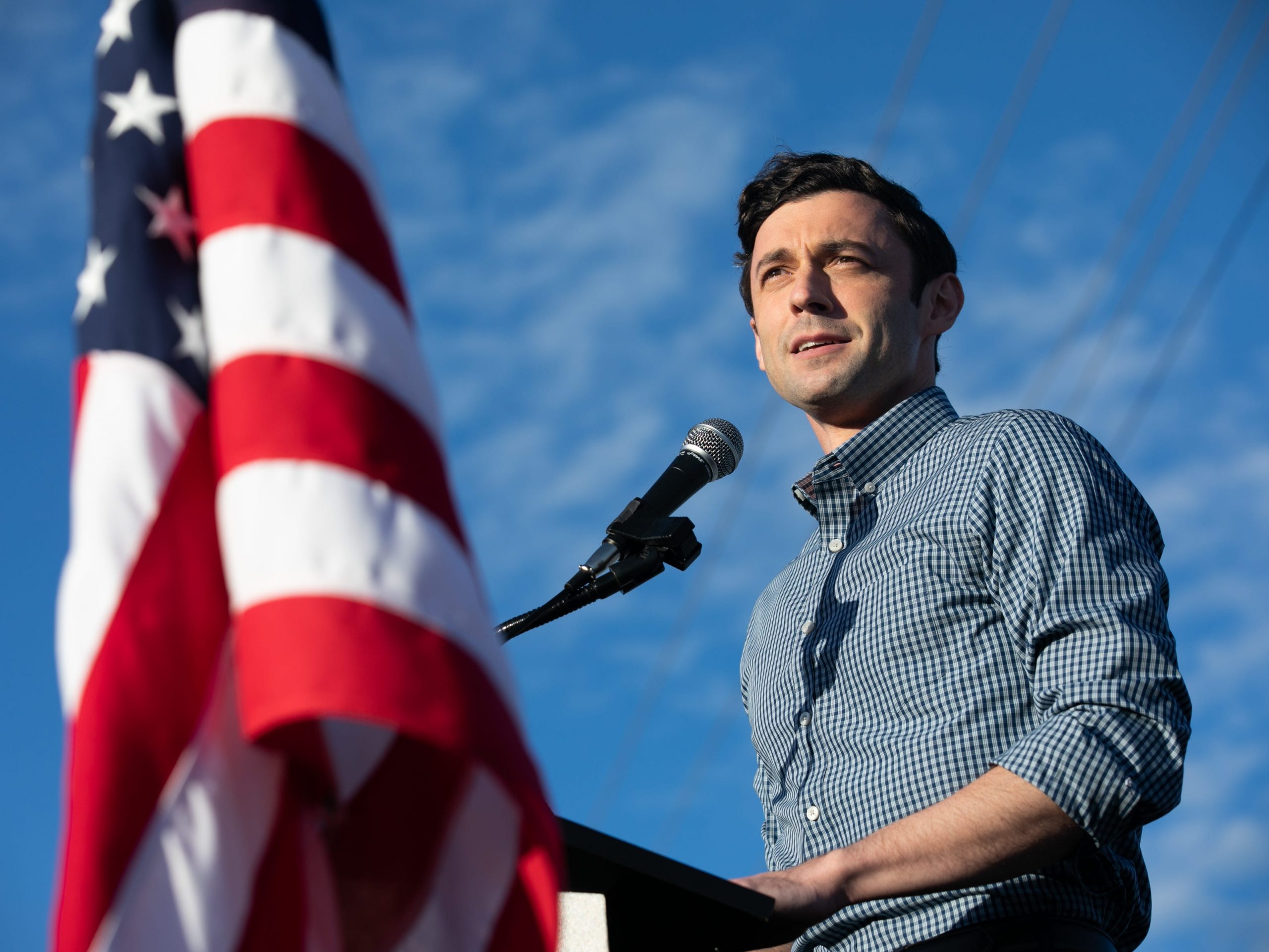
Jessica McGowan/Getty Images
- A bipartisan group of Georgia teens, StudentsFor2020, wants to help flip the Senate by enlisting thousands of students to vote in the January runoffs.
- About 23,000 Georgia teens who were not eligible to vote in the general election on November 3 will turn 18 and become eligible in time to participate in the runoff elections on January 5, according to The Civics Center.
- StudentsFor2020, which estimates they helped 65,000 students register for the general election, is mobilizing hundreds of volunteers in high schools across the state to register new voters, and to try to sway existing moderate voters.
- Visit Business Insider’s homepage for more stories.
A bipartisan group of Georgia teens is trying to flip the Senate by enlisting thousands of students to vote in the January runoffs.
The political organization, StudentsFor2020, was founded by four high school students, two Trump supporters and two Biden supporters, with the goal of registering young voters across the US in the places where their votes would matter most in the general election. They estimate they helped 65,000 students register to vote.
Now they’re focusing their efforts on flipping the Senate by registering thousands of newly eligible voters and mobilizing hundreds of teen volunteers to have real conversations with high school students across the state.
The runoff elections include two Senate races, and the outcome will determine whether or not President-elect Joe Biden has a Democratic majority in the Senate, something experts say he may need in order to accomplish much of his policy agenda at the outset of his first term.
23,000 newly eligible voters
About 23,000 Georgia teens who were not eligible to vote in the general election on November 3 will turn 18 and become eligible in time to participate in the Georgia runoff elections on January 5, according to The Civics Center, a nonprofit dedicated to youth civic engagement.
With that in mind, StudentsFor2020 set an ambitious goal: register almost all of them.
"We're focusing on getting those newly eligible voters," Edward Aguilar, one of the founders of the group, told Business Insider.
He said the group has partnered up with 30 other high school-run political organizations across the state to get those students registered, similar to voter registration initiatives commonly seen on college campuses.
While those newly eligible voters could make significant gains for Democrats, they would not be enough to surpass the lead the Republican candidates held in the November vote.
So Aguilar, 17, said he is really excited about the group's second goal: flip moderate student voters who voted for Republican candidates in the past.
'Voting for policy over party'
A 2020 survey conducted by the Alliance for Youth Action found 59% of young voters said they voted in order to make a difference on the issues that matter to them, rather than for, or against, one party. Aguilar said the group, like many other young people, believe in "voting for policy over party."
"We might actually have the possibility of changing minds here," Aguilar said. "Especially given how many student-first policies Jon Ossoff has."
Ossoff, one of the Democratic Senate candidates the group is working to elect, is running against the Republican incumbent, Sen. David Perdue. StudentsFor2020 is particularly excited by Ossoff, 33, as their long-term goal is to elect more young politicians, or those under the age of 34.
The group is planning a deep-canvassing campaign with hundreds of formerly Republican student-voters who are supporting Democratic candidates in the runoffs. The plan is to have those students talk to young Republican voters to convince them to change their vote.
"I don't want to text people. I don't want to run social media ads. I want to have real conversations with real voters," Aguilar said. He said the goal isn't to just get young people to vote one way in this election, but to get them thinking about the policies that matter to them in a way that will last.
Voting for change
When Aguilar and his colleagues started StudentsFor2020 in September, they began by researching residency laws in all 50 states, eventually determining that more than 3 million college students could legally choose between registering to vote in their home state, or in the state where they attend college.
"We were able to empower people by telling them the best place for them to vote," Aguilar said.
He said a student in California, a reliably blue state, is a lot more interested in voting when they realize they can vote in their home state of Michigan, a swing state.
The group estimates that of the 65,000 students their initiative helped register, some 45,000 of those students changed the state in which they were already registered or planning to register.
Despite young people having a relatively low voter turnout, Aguilar challenged the idea that they are apathetic to the political process. "If you tell them that their vote can actually make change, they're all over it."
